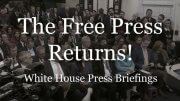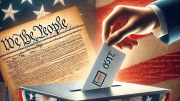This is Part 1 in our series: Reclaiming Power Back to the People
A Constitutional Analysis of Government Weaponization
The concept of “government weaponization” is not just a modern political buzzword; it’s a significant concern that strikes at the heart of our democratic system. Over the years, various government agencies, initially created to serve and protect the public, have expanded their reach. This expansion has, at times, transformed them into tools that can be misused for political purposes, thus contributing to what some describe as a “shadow government.”
Understanding Government Weaponization
Government weaponization refers to using government agencies to target political opponents, enforce ideological conformity, or expand bureaucratic power beyond its original intent. This process can involve anything from selective law enforcement to politically motivated investigations, all of which threaten the impartiality that these agencies are supposed to maintain.
The idea of government weaponization isn’t just theoretical. History offers several examples of government power being used to silence opposition or push a specific agenda. Such actions undermine the public’s trust in these institutions and, more broadly, the government’s ability to act fairly and justly.
The Rise of a “Shadow Government”
Over time, some government agencies have begun to operate with a level of independence that borders on secrecy. This phenomenon contributes to what is often called a “shadow government.” These agencies, while not elected by the people, wield significant power, often making decisions that impact the daily lives of Americans without the direct oversight of the elected branches of government.
For instance, regulatory agencies can create and enforce rules that carry the weight of law, even though these rules may not have passed through the traditional legislative process. This ability to “legislate” without accountability erodes the foundational principle that government should be by the people and for the people.
Constitutional Focus: Separation of Powers and Checks and Balances
The Founding Fathers of the United States designed the Constitution with several key principles in mind, one of the most important being the separation of powers. They believed dividing governmental power among the legislative, executive, and judicial branches would prevent any single entity from gaining too much control.
Separation of Powers: This principle ensures that each branch of government has its own distinct responsibilities. The legislative branch makes the laws, the executive enforces them, and the judiciary interprets them. By keeping these functions separate, the Founders aimed to create a system of checks and balances preventing any branch from becoming too powerful.
Checks and Balances: The system of checks and balances is designed to allow each branch of government to limit the powers of the other branches. For example, the President can veto legislation passed by Congress, but Congress can override a veto with a two-thirds vote. Similarly, the judiciary can strike down laws it finds unconstitutional, but judges are appointed by the executive branch and confirmed by the legislative branch.
These safeguards were implemented to prevent government overreach and ensure that power remains with the people however, when agencies operate independently of these checks and balances, as in the case of a “shadow government,” the balance of power is threatened.
The Impact of Government Weaponization on Individual Rights
The weaponization of government agencies threatens the balance of power and has a direct impact on individual rights. The Constitution was designed to protect individuals’ rights against government overreach. When agencies act as tools for political agendas, they can violate these protections.
Freedom of Speech and Assembly: If government agencies are used to target individuals or groups based on their political beliefs, it can have a chilling effect on free speech and assembly. People may become afraid to express their opinions or gather in support of causes if they fear government retribution.
Due Process and Equal Protection: The Constitution guarantees that all people are entitled to due process and equal protection under the law. However, when agencies selectively enforce laws or target specific groups, they undermine these fundamental rights.
Right to Privacy: The expansion of surveillance by government agencies in the name of national security has raised significant concerns about the right to privacy. While the government has a legitimate interest in protecting the nation, this must be balanced against the individual’s right to be free from unwarranted intrusion.
Why Reclaiming Power Back to the People Is Vital
The concept of “government by the people, for the people” is central to American democracy. However, this principle is undermined when government agencies operate as part of a “shadow government,” making decisions without accountability. Reclaiming power back to the people involves ensuring that government agencies operate within the framework set by the Constitution.
Restoring Accountability: To reclaim power, greater accountability in government agency operations must be achieved. This can be achieved through increased oversight by the elected branches of government and transparency in decision-making processes.
Ensuring Fair Enforcement of Laws: Government agencies must enforce laws fairly and without political bias. This ensures that all individuals, regardless of their beliefs or affiliations, are treated equally under the law.
Protecting Constitutional Rights: Finally, reclaiming power involves protecting the constitutional rights of all Americans. This means holding government agencies accountable when they overstep their bounds and ensuring that the checks and balances remain intact.
Conclusion
Government weaponization and the rise of a “shadow government” are significant threats to the principles upon which the United States was founded. The Constitution’s separation of powers, checks and balances, and protection of individual rights were designed to prevent such overreach. Reclaiming power back to the people is not just about restoring balance—it’s about ensuring that the government serves its true purpose: to protect and uphold the freedoms and rights of its citizens.
Read the Reclaiming Power Series:
- Reclaiming Power: DOJ Weaponization and the Rule of Law
- Reclaiming Power: FBI Weaponization and Due Process
- Reclaiming Power: IRS Weaponization and Equal Protection
- Reclaiming Power: EPA Weaponization and Property Rights
- Reclaiming Power: DHS Weaponization and Individual Liberties
References:
- “Federalist No. 51: The Structure of the Government Must Furnish the Proper Checks and Balances Between the Different Departments,” James Madison, 1788.
- “The Founders’ Constitution,” Philip B. Kurland and Ralph Lerner, University of Chicago Press, 1987.
- “The Weaponization of Government,” The Heritage Foundation, 2022.




